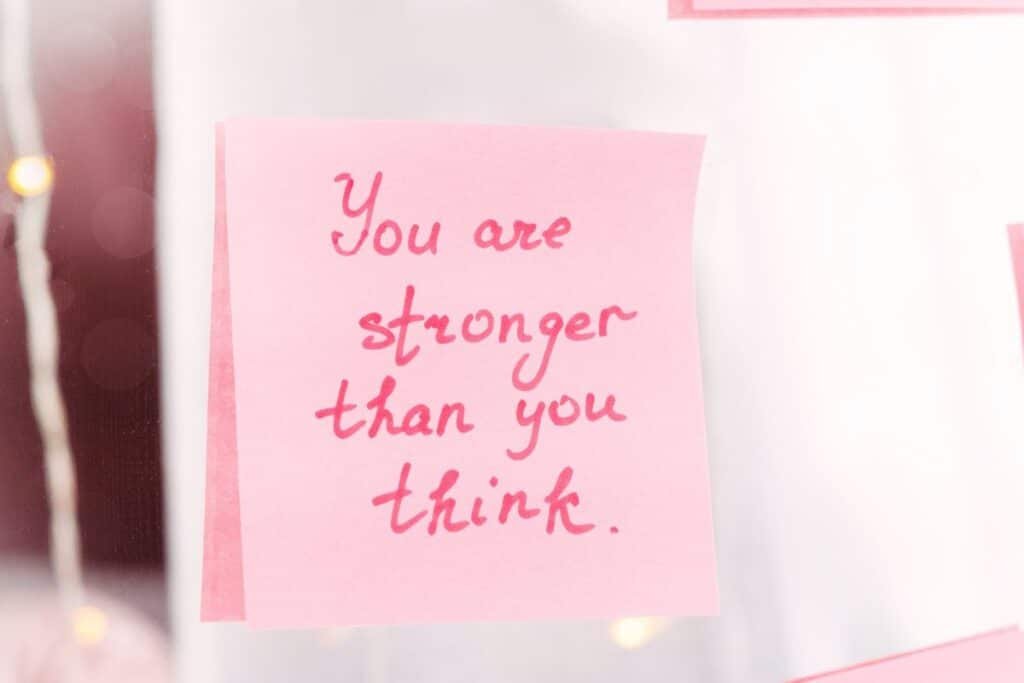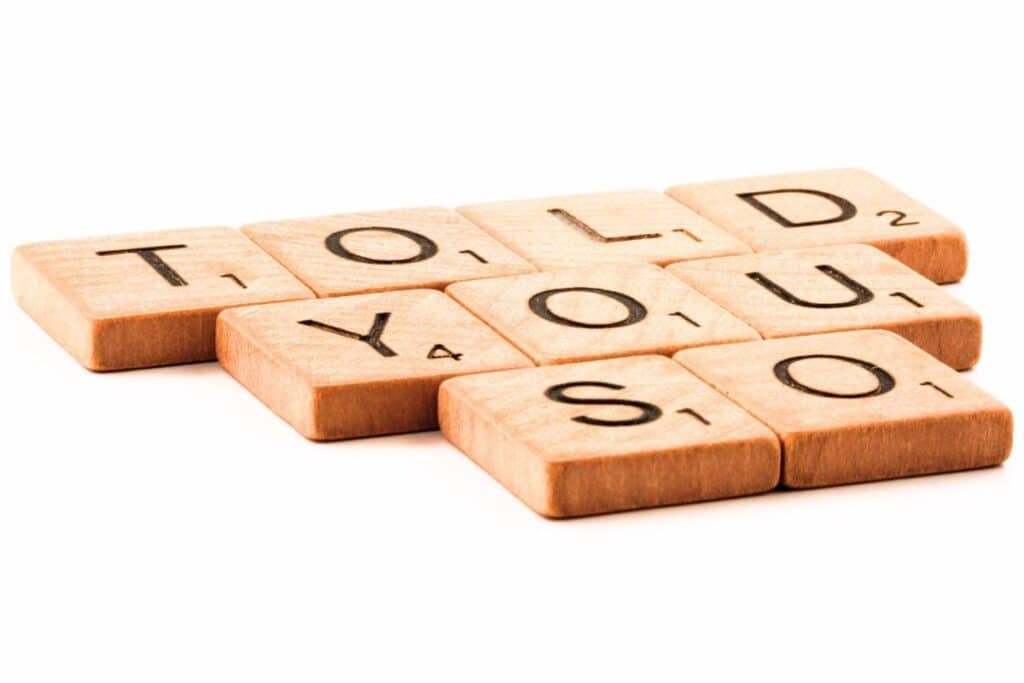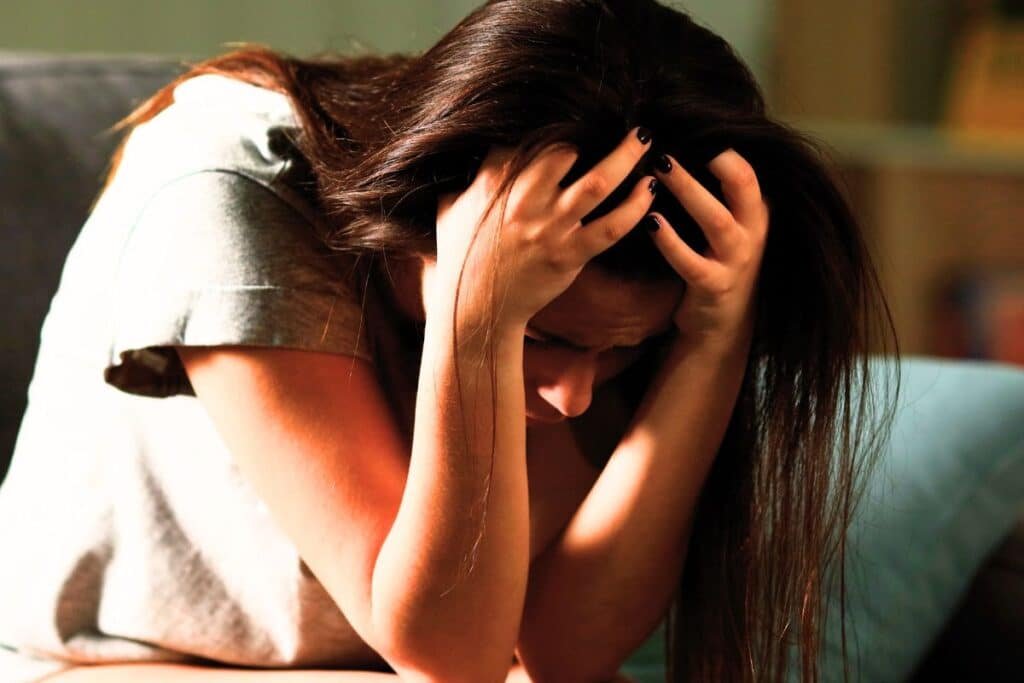When you hear the word PTSD, it’s easy to immediately think about war zones or huge disasters.
But you don’t have to go to battle or survive a massive event in order to have to have PTSD.
Experiencing sexual assault, even one single incident, can land you with PTSD.
Having PTSD, or experiencing symptoms of PTSD does not because you’re “weak” or mean that you are “overreacting” to the situation.
PTSD occurs because your brain and body experienced something that is overwhelming, frightening, and life-changing. And that’s worth talking about.
In this post, we’re going to talk through what PTSD is, how it shows up, and what you can do if you think that you might be experiencing PTSD.
What Is PTSD?
Let’s start with the main question: What is PTSD?
“Post-traumatic stress disorder (PTSD) is a mental health condition caused by very stressful, frightening or distressing events.’
PTSD is classed as a mental health condition categorised in the DSM-5 that can develop after experiencing or witnessing a traumatic event.
For survivors of sexual assault, PTSD can be quite common.
It’s estimated that 94% of rape and sexual assault victims will experience PTSD within 2 weeks of the assault or abuse occurring.
50% of victims of sexual assault and abuse will end up with long-term PTSD.
So if you’re thinking to yourself; “It happened years ago, I should be over it by now,” then I’m giving you permission to give yourself a break. It wasn’t right what happened to you, and you never should have experienced it. But the PTSD symptoms that you might be experiencing now, or longer-term, don’t mean that you aren’t coping or are doing something wrong.
PTSD is your brain’s way of saying: “Something dangerous happened. I don’t feel safe. I need to stay alert.”
Your brain is still trying to protect you. You might not want it to, but it is.
And there’s nothing “silly” about that.
Equally, if you think, “But it only happened once. Surely I should be fine by now?” then I’m giving you permission to give yourself a break.
Even though the danger has passed, your body and mind can still react as if it’s happening right now. It doesn’t matter if “it only happened once” or “it happened a long time ago.”
It’s not your fault for what you experienced, and I agree with you if you’re thinking that the symptoms of PTSD that you experience aren’t fair. But you also need to remember that you’re not broken. Your brain is working to protect you from what happened to you.

A Note on PTSD Being a Disorder
Going slightly off-piste for a second, I want to quickly interject with why I don’t like PTSD to be called PTSD.
The word “disorder” from a medical point of view is:
…characterized by a clinically significant disturbance in an individual’s cognition, emotional regulation, or behaviour.
It is usually associated with distress or impairment in important areas of functioning.
However, I feel that using the word “disorder” just adds to the victim-blaming myth that the victim is somehow to blame for what they are now experiencing.
I’m happy to be corrected on that point, as it’s just a personal view. I also just don’t like the term ‘disorder,’ because it makes it sound like there’s something wrong with you as the victim. When there’s nothing wrong with you at all.
The symptoms that you’re experiencing as part of PTSD are your body and brain’s way of protecting you.
And there’s nothing “wrong” with that.
It’s a survival mechanism which is as innate as breathing, eating, and sleeping. And that doesn’t need to be labelled as a “disorder,” in my lowly opinion.
However, because PTSD is a widely understood term, I use it within all of my writing, including my blog and books.
Symptoms of PTSD
Now that we’ve looked at what PTSD is, let’s look at its symptoms.
PTSD doesn’t look the same for everyone. Some people will have more symptoms than others, and how those symptoms manifest and show themselves will also vary from person to person.
Below, I’ve broken down PTSD symptoms into the categories of emotional, physical, and behavioural symptoms.
Emotional Symptoms:
- Flashbacks that make you feel like you’re back in the assault
- Nightmares
- Disturbed sleep
- Intense fear
- Anger
- Sadness
- Hopelessness
- Emotional numbness
- Detachment
Physical Symptoms:
- Hypervigilance (being easily startled or feeling on edge)
- Panic attacks
- Difficulty sleeping
- Headaches
- Stomach problems
- Body aches
Behavioural Symptoms:
- Avoiding anything that reminds you of the trauma
- Withdrawing from people
- Losing interest in things you used to enjoy
- Using alcohol or drugs to cope
When you’re experiencing a severe episode of PTSD symptoms, it’s always worth reminding yourself that you are now safe and that this will pass.
Related Post: 5 Proven Strategies for Overcoming Panic Attacks
As I said previously in this post, having symptoms of PTSD does not mean that you’re “weak” or “unable to process the trauma.” They’re a sign that you’ve experienced something huge that has made you feel incredibly unsafe and your body is processing that trauma in the only way it knows how to.
Do You Always Develop PTSD After Sexual Assault?
One of the biggest myths out there is that everyone who experiences sexual assault will automatically develop PTSD.
The truth is that not everyone will. But that doesn’t make your experience any more or less valid.
Everyone’s brain and body react to trauma differently.
Some people might experience intense symptoms of PTSD almost immediately after an assault. Others might have symptoms months (or even years) later.
And some people might go through an assault and not develop PTSD at all. Although this is a very, very small percentage (I’ll refer you back to the statistic earlier in this post that suggested only around 6% of victims of sexual assault don’t experience symptoms of PTSD).
If someone doesn’t experience symptoms of PTSD, or doesn’t have PTSD longer-term, it doesn’t mean that they’re “stronger” than someone else who is experiencing PTSD. That’s not how trauma works.
There is a whole range of factors that contribute to how you experience PTSD. These factors include your support system, how your brain processes stress, your past experiences…the list goes on.
What matters is how you feel.
If you’re struggling after sexual assault, whether you meet the full criteria for PTSD or not, you still deserve support, compassion, and care.
And you don’t need a label to justify asking for help.
Why Do Some People Get PTSD and Others Don’t?
This can be such a tough question, and it’s something a lot of sexual assault survivors can wrestle with: “Why did it hit me so hard when other people seem to move on?”
First, you need to remember that some people are good actors and good at putting on a face to the wider world. Fact.
The truth is that when it comes to PTSD, it’s not about how strong you are. It’s about a mixture of factors that include:
- How intense and life-threatening the trauma felt to you
- Whether the trauma was repeated or a one-time event
- Whether you had support afterward and what this support looked like
- What past experiences of trauma you’ve had and how these were handled
- Your brain’s natural stress response wiring
Think of it like this:
If two people are caught in a thunderstorm, one might walk away unbothered, and another might feel rattled for days.
Neither reaction is “right” or “wrong.” They’re just different nervous system responses.
Trauma responses are deeply personal, and you never have to “prove” your trauma to deserve care. Your trauma responses are valid, regardless of how someone else appears to be responding to their trauma on the outside.

Do You Have to Have Experienced the Trauma to Get PTSD?
Interestingly, no.
PTSD “is a condition that some people develop after experiencing or witnessing a traumatic life-threatening event or serious injury.”
While PTSD often happens to people who directly experience trauma (like sexual assault survivors), it can also happen if you:
- Witness someone else being assaulted
- Hear detailed, disturbing accounts of someone’s assault
- Find out a loved one was assaulted in a violent or shocking way
I once spoke to a lawyer who dealt with so many sexual abuse cases that she ended up having PTSD as a result of the narratives that she was constantly exposed to.
Your brain doesn’t always distinguish between experiencing trauma and being close to trauma.
This is why even learning about another’s suffering, particularly when it’s graphic, shocking, or personal, can leave lasting emotional scars. This is also why it’s so important for therapists working with sexual assault victims and survivors to have their own support network in place, including appropriate supervision from managers.
What to Do If You Think You Have PTSD
First, if you think you have PTSD, I want you to remember this:
You are not broken.
You are not crazy.
You are responding exactly how any human would if they’d gone through what you did.
If you’re starting to connect the dots and think PTSD might be at play, then I’d recommend that you:
- Reach out for professional help. Trauma-informed therapists know how to help survivors of sexual assault and abuse work through PTSD safely. You can check out the Support Services page if you don’t know where to start.
- Re-read the above section about the symptoms of PTSD. The more you can understand that what you’re experiencing is normal and a product of what you’ve experienced, the less scary it can feel.
- Make self-care a habit. If you’re like me, that recommendation might induce an eye roll, but self-care is important. And as I’ve learned, self-care can support you through PTSD.
- Know that recovery is possible. PTSD doesn’t mean you’re stuck this way forever. Healing is messy and definitely not non-linear. But it is possible.
Recommended Reading: Support Services
Recommended Reading: 15 of The BEST Songs for Trauma Recovery
Recommended Reading: 16 Easy Self-Care Ideas to Do At Home: Free Ways to Look After Yourself
Will I Ever Get Over PTSD?
If you’re experiencing symptoms of PTSD, or living with a diagnosis of PTSD after sexual assault, it’s so normal to wonder if you’ll ever “get over” it.
And the honest answer is: you can heal.
Healing from PTSD doesn’t always mean you’ll completely forget the trauma or never have a bad day again. It means the trauma stops controlling your life.
It means you can feel safe again in your own skin.
It means you can build a life that isn’t constantly shaped by fear, shame, or pain.
Healing looks different for everyone.
For some survivors, therapy is life-changing.
For others, it’s a mix of therapy, community, self-care, medication, or creative expression.
There’s no one-size-fits-all roadmap to dealing with PTSD and the trauma that you’ve experienced. There’s also no deadline that you need to meet. Healing happens in your own time and when you’re ready for it. Healing at your own pace is fine. In fact, rushing healing can sometimes set you back because you’re forcing yourself to confront and deal with something that you’re not yet ready to deal with.
But I promise, you won’t be “stuck like this forever.”
Final Thoughts
Whether you’ve experienced one assault or repeated sexual abuse, your trauma is valid.
This statement of validity is also relevant to how you experience symptoms of PTSD.
Whether you have a few symptoms or what feels like all of them, what you’re feeling is valid.
It’s okay to ask for support. It’s okay to take up space. You didn’t cause what happened to you. And you don’t have to heal alone. There are many, many amazing people and organisations who can help and support you.
You deserve to feel safe in your own skin. You deserve to feel peaceful in your own mind. You deserve to be listened to. And you deserve to heal. You’re more than what you experienced.



